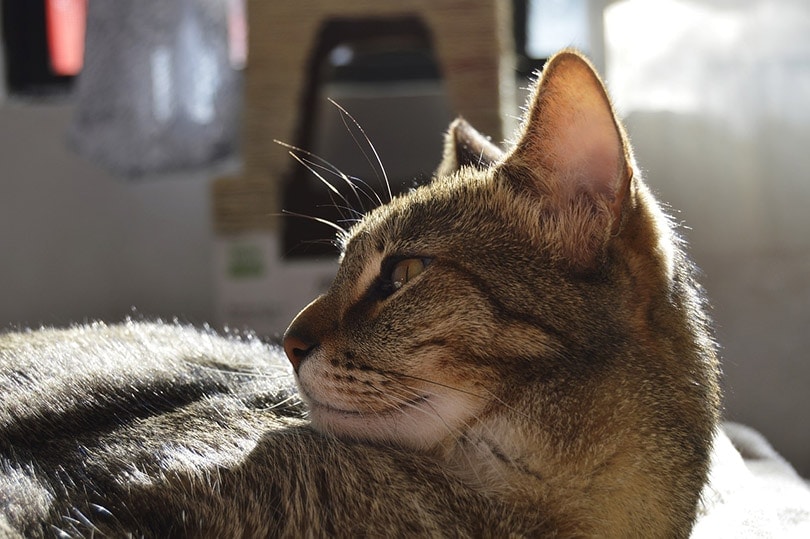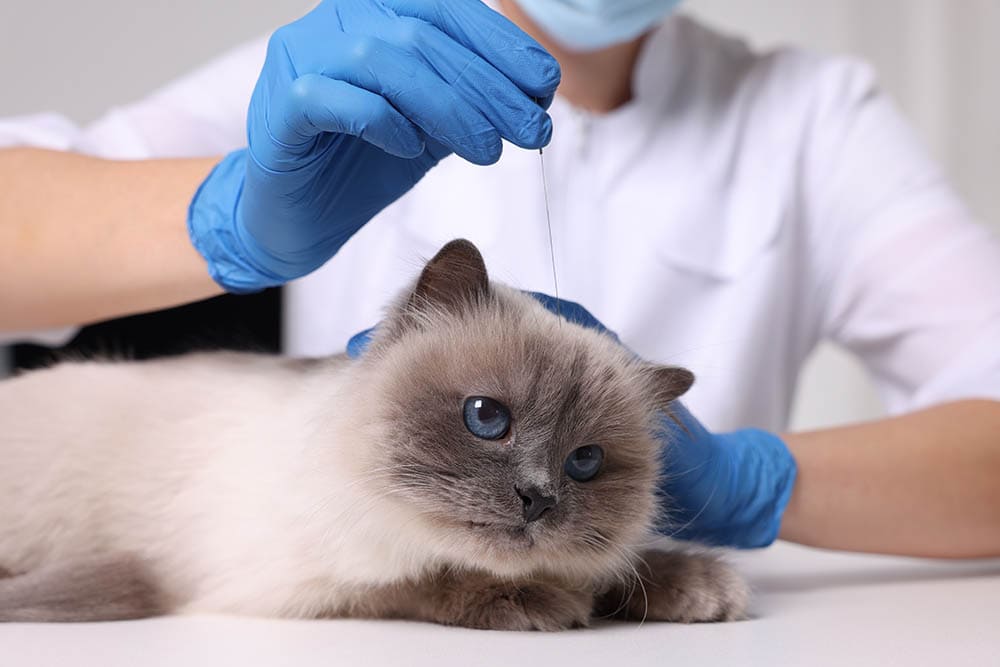Why Does My Cat Sleep Under My Bed? 9 Vet-Reviewed Causes
By Jordyn Alger
Updated on
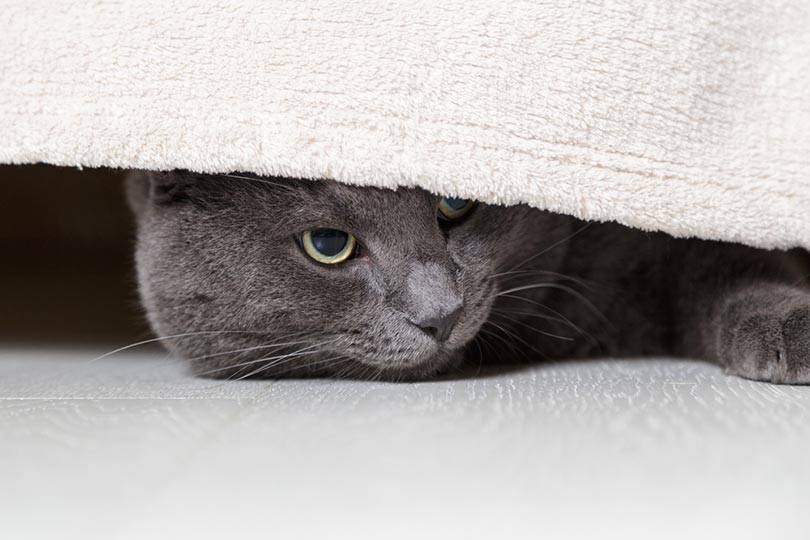
Cats are full of strange quirks. As pet owners, we can usually make sense of those strange habits, but some of them are a bit harder to decipher—and potentially more worrisome.
If your cat sleeps under your bed, there could be several reasons. Some of the listed causes are simply habitual actions, while others may be signs of something dire. If you suspect your cat may be exhibiting signs of a concerning condition, reach out to your vet as soon as possible.
If you are curious about why your furry friend has developed this new habit, read on!
The 9 Common Causes Why Your Cat Sleeps Under Your Bed
1. Anxiety
If your cat is sleeping and hiding under your bed regularly, it could be a sign of anxiety. If your cat has anxiety, she expects danger even when none is present. This constant anticipation can lead to physical symptoms such as shaking, high heart rate, quick breathing, and excess salivation.
Behavioral symptoms may be present as well. This includes hiding (under a bed) and increased meowing. Cat anxiety can often be spotted before the first year of age. If proper care is not taken, the condition will only grow worse with time. To treat this anxiety, your vet may recommend a combination of medication, therapy, or environmental adjustments.
Pet parents with anxious kitties know the pain of watching their companions be uncomfortable—that’s where the Hepper Nest Bed comes in. Our product is designed with nervous pets in mind. The bowl shape with high rounded sides comforts your cat to make them feel safe and secure, while the self-warming, sherpa fleece insert and flexible molded foam ensure that they stay as cozy as possible. Learn more about how the Next can calm your anxious pet here.
2. It Is a Nice Napping Spot
Your cat may have taken to sleeping under your bed simply because it is a nice spot to nap. Cats frequently nap throughout the day, and it is no surprise that your cat might have a few favorite napping spots. The floor underneath your bed may be the perfect place for them to plop down and nap. It’s private, quiet, and dark.
If your cat does not seem to be distressed or behaving too oddly, then there likely is not any cause to worry! She has probably just found a new napping spot that she loves.
3. Pregnancy
Another possible reason your cat has been staying under your bed is pregnancy. If your cat is pregnant, she may display several abnormal behaviors. Her personality may change, making her more reclusive (which could lead her to hide under your bed) or clingier. Physical symptoms include weight gain, enlarged abdomen, increased appetite, and vomiting.
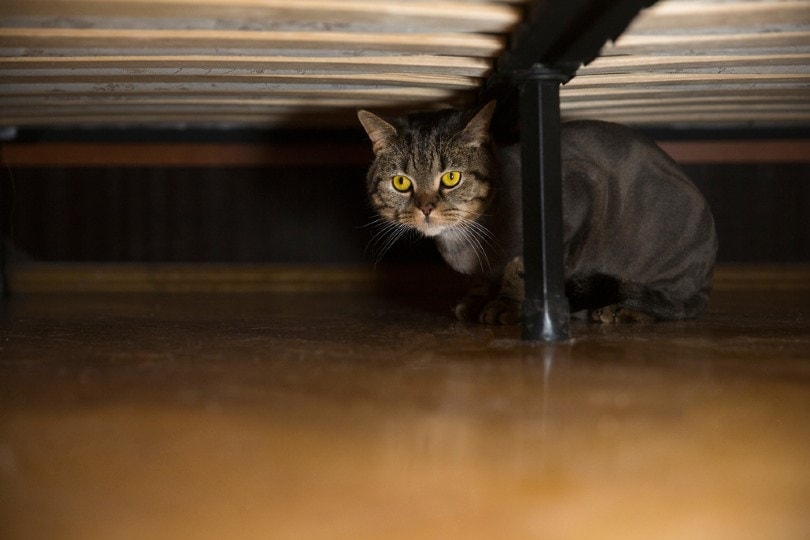
4. Weather
The space under your bed can be a great place to escape the weather. For example, if it’s hot and sunny, the temperature in the house may be warmer than your cat is used to. She may sleep under your bed to get a shady, cool place to rest.
Or perhaps a storm has scared her enough to send her under the bed. Some felines are scared of thunderstorms, and if there is a storm brewing, they may run under the bed in preparation.
5. Visitors
Do you have visitors at the house? Maybe you have invited the family to stay a week or two in your guest bedroom, or you allowed a friend to crash on your couch. Regardless, if you have unfamiliar people in your house, your cat may sleep under the bed because the strangers make her nervous.
Many cats are not too keen to cuddle up with people they do not know. If guests are making your cat feel skittish, the best thing you can do is ensure she has space. Cats need to approach new people on their own time and cannot be forced. Eventually, if your cat grows comfortable enough, she may slink out from under the bed on her own to make a new friend!
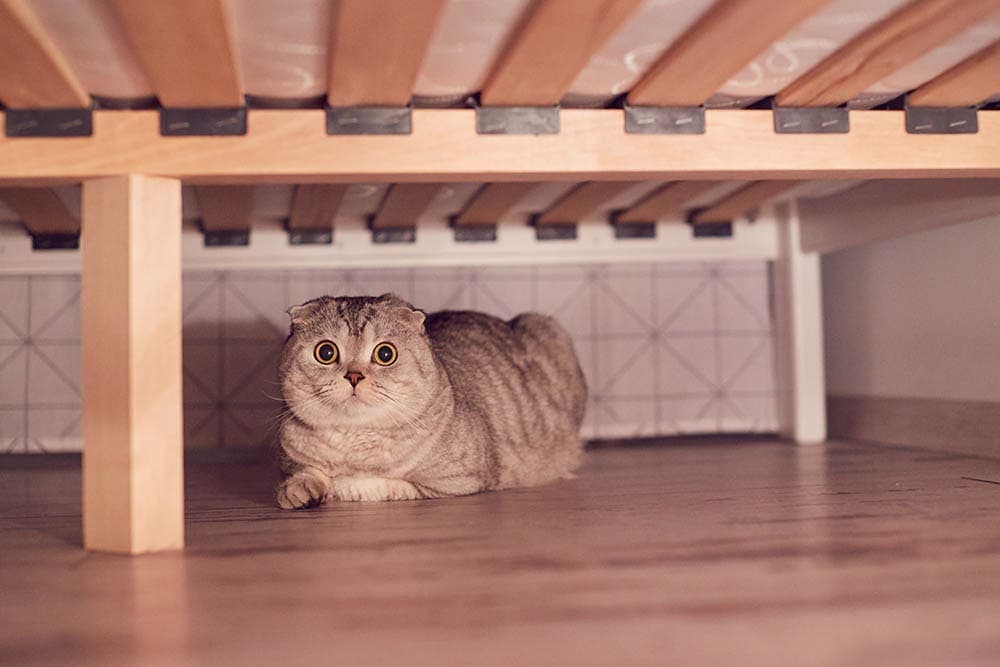
6. Pain
Pain can make cats reclusive. If something is hurting your pet, she may retreat under the bed to have her own space while she tries to recover.
If your cat is in pain, she may be showing some unusual behaviors. These include hiding, holding tension in her body, appearing apathetic, grooming poorly, failing to use her litter box, or displaying aggression.
If your cat appears to be in pain, reach out to your vet. See if the source of the pain is something you can pinpoint (such as a scratch). If you can identify it, it will allow you to give more information to your vet.
7. Illness
If your cat is sick, she may exhibit odd behavior, such as sleeping under the bed. Cats that are feeling unwell are known to become reclusive, which may cause them to hide in unusual places.
Several physical symptoms could indicate your cat is not feeling well, but dehydration is one of the most common. To check if she is dehydrated, gently pull the skin at her shoulder blades before letting it drop.
If the skin snaps back into place quickly, she is well-hydrated. But if her skin sags slowly back into place, she does not have enough water. If your cat is dehydrated, get in contact with your vet as soon as possible.
Other signs of sickness include a poor physical appearance, changes in feeding or drinking habits, increased or decreased urination and defecation, difficulty breathing, droopy eyes, eye or nose discharge, and foul odors. Reach out to your vet immediately if your cat is displaying any of these conditions.
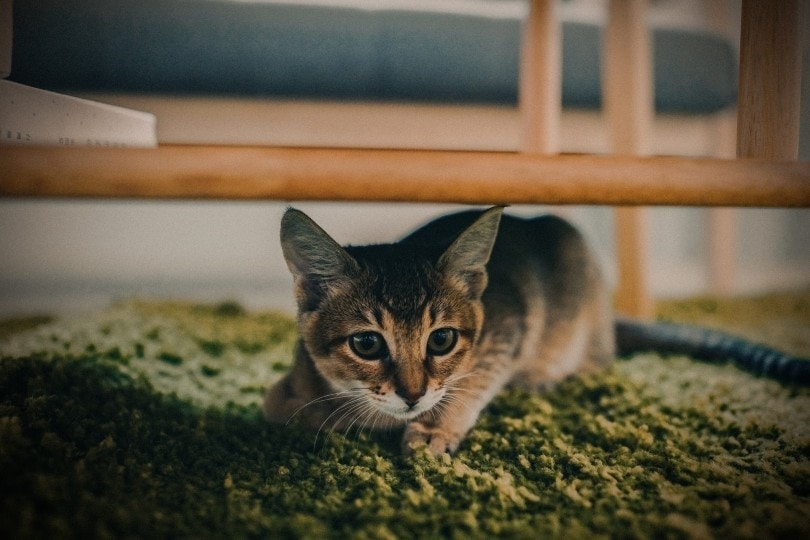
8. Stress
If your cat is stressed, she may be sleeping under the bed to escape the source of the anxiety. Other signs that your pet is stressed include growling, hissing, appearing tense, ignoring the litter box, and tolerating others less. Physical symptoms include increased or decreased appetite, constant swallowing, vomiting, and diarrhea.
9. Curiosity
You probably already know the stereotype of cats being curious. Well, as it turns out, cats are very curious creatures. This curiosity can lead to your cat occasionally getting into all sorts of mischief, such as digging into plants, stealing, and hiding socks. It also means that your cat may be prone to exploring places she has never been before, including the underside of your bed.
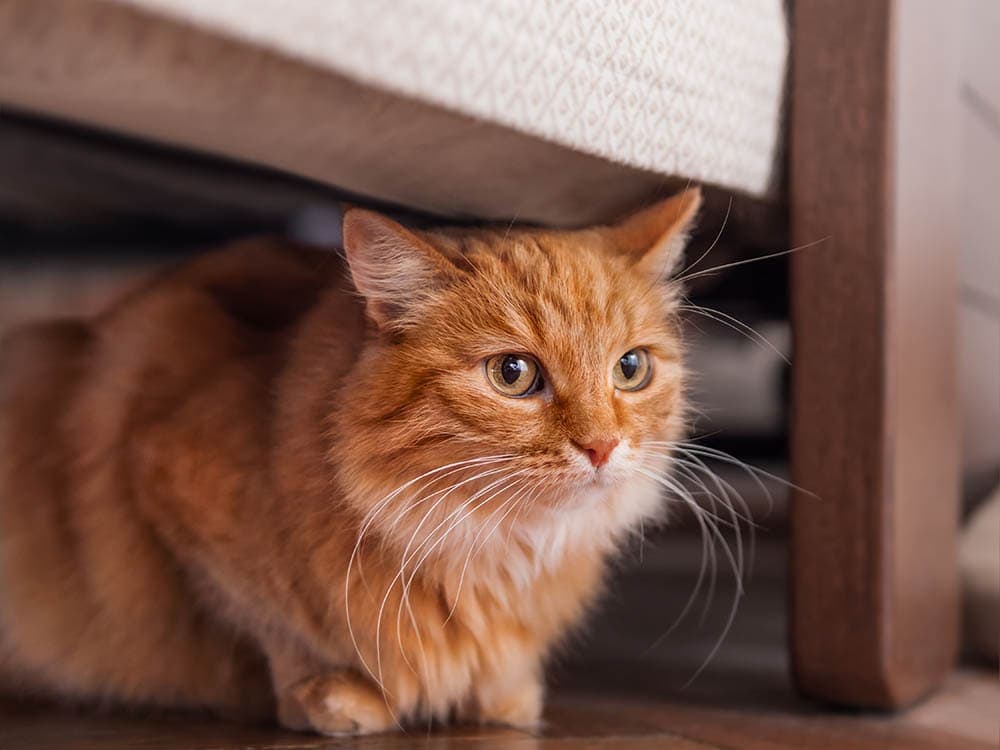
Conclusion
Most of the reasons that a cat may be sleeping under your bed are relatively harmless, but if you are concerned about the behavior, do not hesitate to reach out to your vet—especially if your cat appears to be distressed or in pain. When it comes to harmless behavior, the odd things cats do can baffle us, but ultimately the quirks are a part of a cat’s charm.
Featured Image Credit By: GCapture, Shutterstock




